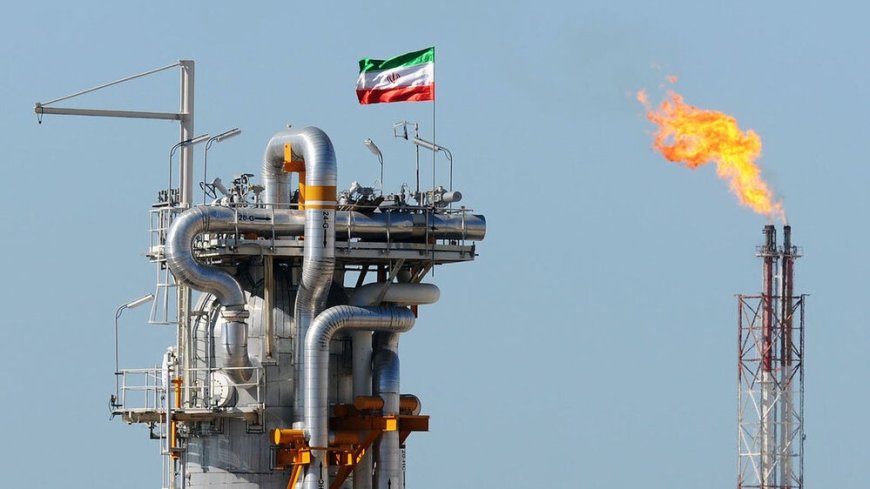Iran’s Energy Weapon: А Game-Changer in the Struggle against Western Imperialism?

By: A. Mahdavi
Since the escalation of tensions in Southwest Asia, the issue of energy security and the continuity of its supply has emerged as one of the critical challenges facing the global energy market. Southwest Asia accounts for nearly 15% of the world’s energy supply, and the Suez Canal, a key transit route, also faces its own set of challenges.
Since the outbreak of war in Gaza, the markets, particularly the energy sector, have expressed their concerns through sporadic price spikes at various intervals. Although these price shocks have been somewhat limited, they have left a discernible impact on the market. These fluctuations vividly underscore the strategic significance of the Southwest Asia region. Despite the West, led by the United States, attempting to mitigate the effects of the war on the energy market, it seems their efforts have largely fallen short.
On the eve of the Islamic Republic’s punitive operation, the United States increased its expenditure on purchasing and maintaining its strategic reserves by over one billion dollars, while global oil prices surged by more than three dollars per barrel. This development clearly demonstrates that, despite America's maximum efforts to increase crude oil production, market demands and the fear of war continue to exert tangible pressure on prices.
In the modern world, energy has become one of the most vital components of national security and economic growth. With the discovery of fossil fuel resources, the global landscape has been transformed. Countries possessing these resources have ascended to global prominence and have, in turn, become targets of imperialist powers.
Alongside the critical role that energy plays in the global economy as its lifeblood, a paramount issue is the strategic importance of the world’s energy-rich regions. Iran’s location at the heart of global energy, spanning from the Caspian Sea to the Persian Gulf, presents an unparalleled geopolitical-economic opportunity. Iran has consistently strived not to wield energy as a weapon and to prevent threats that might disrupt global energy supply. However, the West has not reciprocated in kind. By imposing sanctions on Iran's oil exports, they have effectively weaponized economic tools for political purposes.
The immediate result of these Western actions has been short-term market shocks. Subsequently, the West sought to fill the void left by Iran’s diminished supply through increased production from other countries. While this strategy has met with some success in recent years, it has not resulted in Iran’s complete exclusion from the market, as doing so would be far costlier. Nevertheless, Iran, fully aware of its unique position, could leverage energy as a costly weapon in the energy market.
In fact, Iran should create such costs for the regional countries and neighbors that align themselves with Israel. Initially, this strategy may face opposition, as many will argue that it would impose exorbitant costs on Iran. However, the reality is that Iran must define this path as part of a "madman theory" strategy to bolster its bargaining power in the face of escalating tensions with Israel.
Some argue that if Iran threatens to destroy the refineries of neighboring countries, it risks losing the support of its friends, including China. However, the stark reality is that Iran now faces a direct existential threat, and in order to counter this threat, it must employ all available tools, for survival is the foremost priority for any state. Furthermore, China must fully recognize that if the necessary means to contain Israel are not employed and Israel achieves its goals, China will undoubtedly emerge as one of the greatest losers in the Middle East conflict. It must brace itself for far greater challenges, likely closer to its own borders.
Russia, on the other hand, appears to be the major beneficiary of this strategy. If energy supplies from the Persian Gulf are disrupted for any reason, soaring energy prices would greatly benefit Russia, allowing it to sell its oil and gas at a much higher price. In other words, Europe and the West would find themselves on the losing side of this equation with Russia, but the Persian Gulf states would bear the brunt of this cost.
Thus, despite U.S. efforts to control the energy market in the event of a war between Iran and Israel, it has not succeeded, even at maximum production capacity. If Iran can effectively wield energy as a weapon, it may significantly enhance its leverage and negotiating power in diffusing tensions. Though such a move carries significant risks, it might prove essential within the framework of the madman theory to secure a more favorable outcome.













































